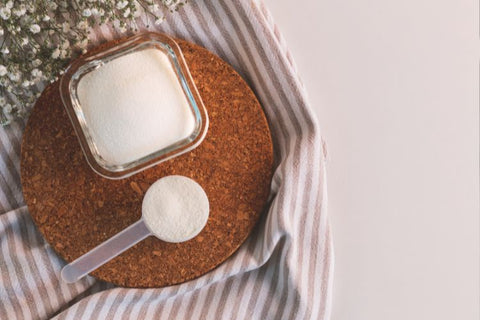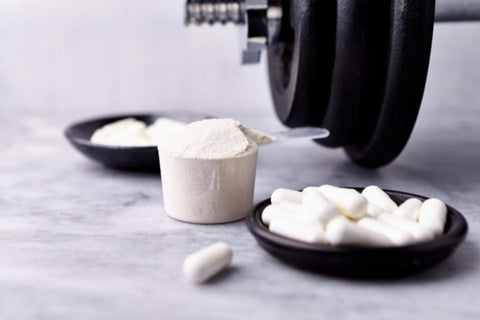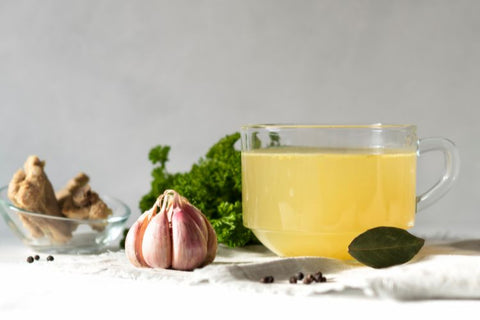Collagen protein itself is dairy-free. It comes from the connective tissues of animals like cows, pigs, or fish. The processing breaks down the collagen into easily absorbed peptides.
This is good news for people who are lactose intolerant or follow a dairy-free diet. Collagen becomes a great option for getting protein without dairy.
Let's dive deeper into collagen protein and explore its benefits for those seeking a dairy-free option.
Natural Source and Animal Origin of Collagen
Collagen is a naturally occurring protein in the body but can also be found in animal sources. These animal sources are typically connective tissues like skin, tendons, and cartilage.
Here's a breakdown of common animal sources of collagen:
- Bovine: This refers to collagen derived from cows.
- Porcine: This refers to collagen derived from pigs.
- Marine: This refers to collagen derived from fish and shellfish.
- Poultry: This refers to collagen derived from chicken and turkey.
It's important to note that collagen is not derived from dairy products. Milk, cheese, and yogurt don't contain collagen protein.
Dairy-Free Nature of Collagen Protein
In the world of health and fitness, protein plays a crucial role. But for those following a lactose-free or dairy-free diet, finding suitable protein sources can be a challenge. Whey and casein, staples in many protein powders, come from milk, leaving those with dairy sensitivities out in the cold.
Non-Dairy Formulas and Labeling
There's growing recognition of the need for clear labeling on collagen supplements regarding dairy content, especially for those following lactose-free or dairy-free diets. Here's what you can expect:
- Increasing "Dairy-Free" Labels: Many manufacturers are now explicitly labeling their collagen supplements as "dairy-free" or suitable for lactose intolerance. This makes it easier for consumers to identify safe options.
- Importance of Reading Labels: Even with the rise of "dairy-free" labels, it's still crucial to be a label reader. Only some brands may have adopted this practice.
Here are some tips for navigating labels:
- Focus on Key Phrases: Look for phrases like "dairy-free," "lactose-free," or "suitable for lactose intolerance."
- Avoid Flavored Products: Flavored collagen supplements often contain additives and flavorings, which might have dairy origins. Opting for unflavored versions minimizes this risk.
Reading product labels for verification is crucial because it empowers consumers to make informed decisions. Here's why it's important:
- Safety: Labels disclose crucial information like ingredients, warnings, and allergens. This helps you avoid allergic reactions or incorrect usage that could lead to harm. For example, cleaning products might warn about mixing certain chemicals, or food labels might highlight allergens like peanuts or soy.
- Informed choices: Labels provide details about the product's content and composition. This allows you to compare similar products, assess quality, and ensure you're getting what you pay for. For instance, comparing sugar content between cereals or checking the fiber content in bread helps you make choices that align with your dietary needs.
- Proper Use: Labels often include instructions and directions for use. Following these ensures the product functions correctly and delivers the intended results. For instance, paint labels might specify ideal application temperatures or clothing labels might have washing instructions to prevent shrinkage.
- Avoiding misleading claims: Marketing on packaging can be persuasive. Labels provide factual information to verify those claims. This helps you make objective choices based on what the product contains or does.
Vegan Collagen Alternatives
Collagen is a protein naturally found in our bodies, but vegans and those who avoid animal products for other reasons can't consume traditional collagen supplements. Luckily, there are plant-based alternatives that can provide similar benefits.
1. Plant-Based Alternatives to Animal Collagen
Here are some plant-based alternatives to traditional animal-derived collagen:
- Vitamin C Rich Foods: Vitamin C is essential for the body to produce collagen. Fruits and vegetables like citrus fruits, berries, bell peppers, and broccoli are all excellent sources.
- Plant-Based Protein: Collagen is made from amino acids, the building blocks of protein. Plant-based protein sources like tofu, tempeh, lentils, beans, nuts, and seeds provide the amino acids your body needs to create collagen.
- Foods rich in Silica: Silica is a mineral that helps with collagen production. Plant sources of silica include leafy greens, brown rice, oats, and bamboo extract.
2. Mimicking Collagen's Benefits
These alternatives don't directly contain collagen, but they provide the nutrients your body needs to produce collagen. Here's how they work:
- Vitamin C: As mentioned earlier, Vitamin C is crucial for collagen synthesis. By consuming enough Vitamin C, your body has the necessary elements to build collagen.
- Plant-Based Protein: The amino acids from plant-based protein sources provide the building blocks your body uses to create collagen.
- Silica: Silica helps to support collagen structure and may improve its production.
Consideration of Hydrolyzed Collagen
Collagen is a major protein found throughout your body, providing structure and support to your skin, bones, and joints. But as we age, our collagen production naturally slows down. This can lead to wrinkles, weaker joints, and other signs of aging. That's where hydrolyzed collagen comes in. Here's the breakdown of what it is, how it's made, and why checking labels is important for consumers:
- Hydrolysis: Hydrolysis is a process that breaks down large molecules like collagen proteins into smaller, more easily absorbed pieces called peptides. This is often done using enzymes or acid/alkaline treatments.
- Benefits: Hydrolyzed collagen, due to its smaller size, is easier for the body to absorb than regular collagen. Supporters claim it can improve skin health, joint health, and even muscle strength. However, more research is needed to confirm all these benefits.
- Source: Hydrolyzed collagen can be derived from various animals like cows, pigs, or fish.
- Dairy-Free: If sourced from cows or pigs, hydrolyzed collagen is generally considered dairy-free because it doesn't contain lactose, the sugar found in milk. Lactose is typically removed during the processing of collagen.
- Importance of Label Check: However, it's always crucial to check the product label. Some manufacturers might add dairy-based ingredients for flavoring or other purposes.
Collagen protein offers a dairy-free option for individuals with lactose intolerance or those following a dairy-free diet. By checking labels for explicit "dairy-free" claims, consumers can make informed choices about their collagen supplements. Additionally, for vegans and those seeking plant-based alternatives, options rich in vitamin C, plant-based proteins, and silica can support collagen production. Remember to prioritize label reading for safety, and efficacy, and to avoid potential allergens.
Key Takeaways
- Collagen protein is dairy-free as it comes from animal connective tissues, not dairy products like milk or cheese.
- Look for explicit "dairy-free" labels on collagen supplements for those with lactose intolerance or dairy-free diets.
- Reading product labels is crucial for safety, informed choices, proper use, and avoiding misleading claims.
- Vegan alternatives to collagen include vitamin C-rich foods, plant-based proteins, and silica-rich foods.
- Hydrolyzed collagen, broken down into peptides for better absorption, is generally dairy-free, but always check labels for potential dairy-based additives.






